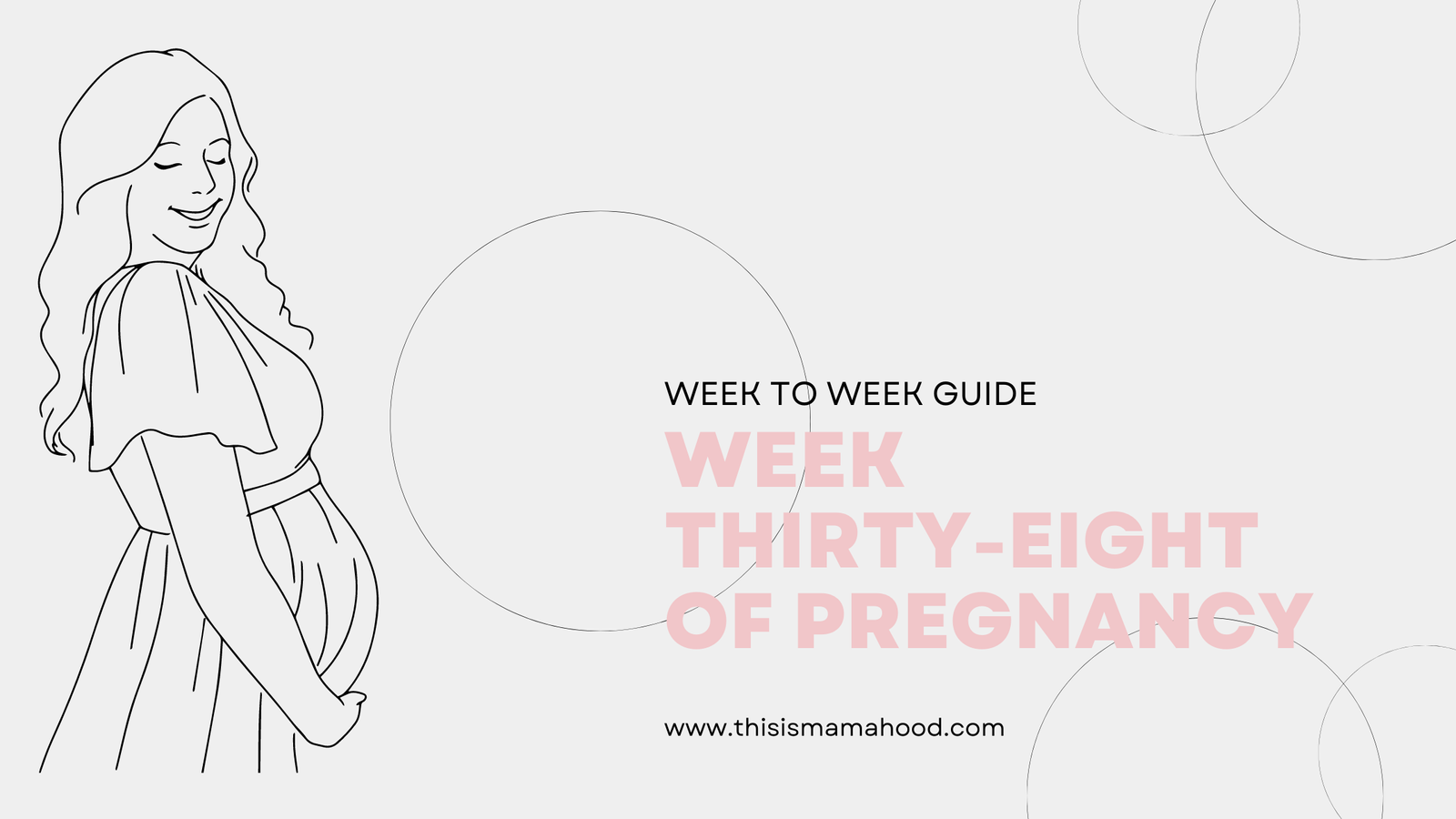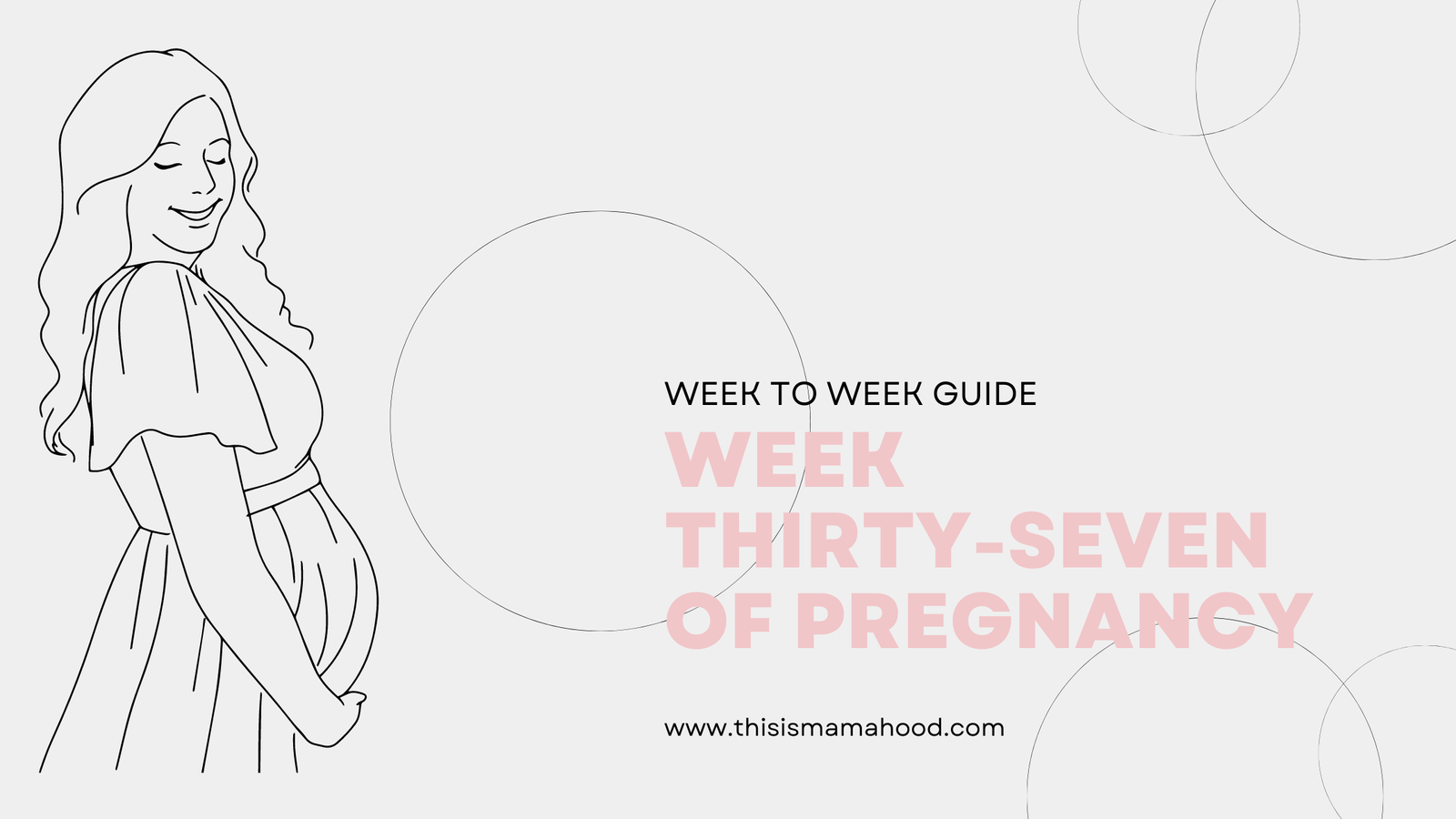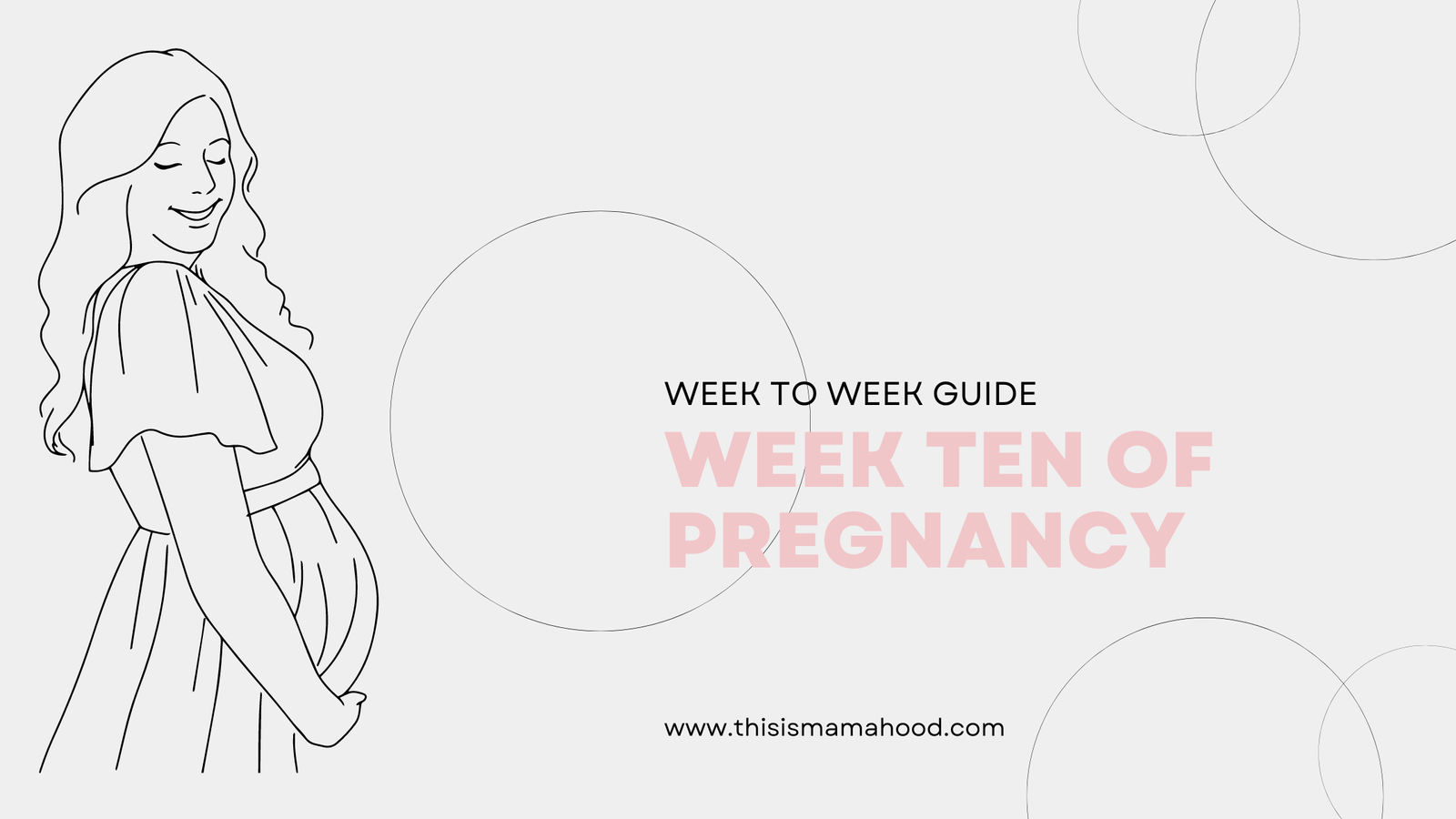Overview of Week 38 of pregnancy
During week 38 of pregnancy:
- Your baby is 19 inches long
- You are in trimester three
- 2 more weeks to go
- Vocal cords are fully developed
With only 2 more weeks left until your due date, you are probably feeling an array of different emotions: excitement, fear, anxiousness, and joy. Take this time to go over all the signs of labor with your healthcare practitioner and have an action plan ready to go for when that special moment happens. Also, have you decided on your baby’s name yet?
How many months pregnant is 38 weeks?
You are in the final countdown of pregnancy. You are roughly 8 months and 3 weeks pregnant. Pregnancy is measured to be 40 weeks long, which ends up being about 9 months and 1 week. That means only 2 more weeks of pregnancy left. However, realistically, your baby could come at any time now.

How big is baby at 38 weeks pregnant?
This week your little one is the size of a rhubarb bunch. Your baby is measuring around 19 inches long and weighing around 6.75 pounds during week 38 of pregnancy. Remember, that these sizes are approximate and each baby grows at its own rate. Babies, at this point in pregnancy, tend to gain about 1 ounce each day.
Baby development during week 38 of pregnancy
Lungs
By 38 weeks pregnant, your baby’s lungs are almost fully developed and ready for life outside the womb. Surfactant, a substance that allows the sacs in your lung to fill with air and prevents them from collapsing, is continuing to be developed.
Voice
Your baby’s vocal cords are fully developed and ready to be put into use to communicate with you once outside the womb. Those little cries, moans, and wails will get to be heard very soon!

Pregnancy Week 38 Symptoms
Leaking breasts
Your breasts are getting ready to start milk production for your newborn; therefore, you may start to notice some liquid leaking from your breasts in the final weeks of pregnancy. Although, some women may have experienced this weeks, or even months, ago already. The liquid from your boobs is colostrum, the first form of milk your breasts make to feed your newborn.
Braxton-Hicks
Braxton-Hick contractions are false labor pains caused by the contraction of the uterus. They are not contractions that indicate that labor is coming; instead, they prepare your body for labor. Unlike labor contractions, these contractions come irregularly and do not increase in length or strength. They can feel uncomfortable and like mild menstrual cramps. If you have Braxton-Hicks that seem to worsen or don’t stop, check in with your doctor to make sure they are not real contractions.
Hemorrhoids
Hemorrhoids are swollen veins in your rectum and around your anus. During pregnancy, increased blood flow to the pelvic area, as well as increased pressure from the uterus, causes veins around your rectum to swell. Hemorrhoids can be uncomfortable and if you get them, it is best to avoid sitting for too long at a time, as sitting can cause extra pressure on the veins.
Swelling
Swelling in pregnancy is a normal symptom that usually starts in the second trimester and may worsen towards the end of pregnancy. Excess fluids in the body and pressure from your growing uterus can cause water retention in the feet, ankles, and hands. If you notice your fingers starting to swell, you should remove any rings until the swelling goes down. Let your doctor or midwife know if the swelling worsens or if there is a large amount in your face or around your eyes.
Trouble sleeping
With your growing belly, you may find it increasingly difficult to fall asleep. Your big belly will make getting into a comfortable position a tough task. Add in increasing heartburn and increasing movements from your baby and then sleeping will seem impossible. Make sure you have a comfy pregnancy pillow and avoid eating foods that aggravate heartburn.
Heartburn
Pregnancy hormones may allow the muscles in the esophagus to relax more frequently, allowing stomach acids to push back up into the esophagus. This is what causes the burning sensation in your chest, known as heartburn or acid reflux. Now that your baby and uterus are growing, there is also more pressure on your stomach which causes acids to be pushed further up. Over-the-counter medications, such as Tums or Rolaids, can help to reduce any discomfort. If any pain persists, it is best to talk to your doctor about other medications that may be available.
Pregnancy week 38 tips
Take pictures
Have you taken your weekly baby bump photo yet? These pictures will be a good memory to look back on and it is a fun way to show your belly growing throughout your pregnancy.
Learn signs of labor
Labor could come at any time now; make sure you know the signs that your baby is coming. Talk to your doctor or midwife about symptoms of labor and when you should make your way to the hospital. Here are some common signs of upcoming labor:
- Losing your mucus plug
- Diarrhea
- Your water breaking
- Increasing contractions
Learn to use baby gear
You probably have a bunch of baby gear taking over your home. While you are busy finding spots for everything, and putting the things together that need to be built, it is also a good time to make sure you know how to use these things. Check manuals and instruction booklets on how to operate things like baby swings and sound machines. Make sure you know how to fold and unfold your stroller and how to adjust straps. If you have a baby carrier, test it out with a teddy bear to make sure you know how to get the baby in and how to secure them.
Perineal massage
The goal of perineal massage is to stretch the perineal tissue (area between anus and vagina) and prepare it to stretch over your baby’s head during delivery. Perineal massage is often done to aid in labor and prevent tearing or trauma. You can do it either by yourself or with the aid of your partner.




